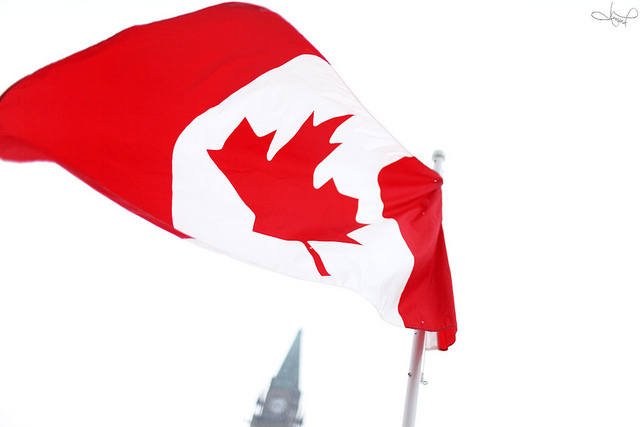Chip in to keep stories like these coming.
Liberals and NDP are the same but don’t know it
It’s as if Canada already has one main opposition party, the LibDp, but the two components haven’t quite realized it. To the degree the NDP has slipped ahead of the Liberals it’s largely because they’ve Liberalized themselves. This has a justice: for years NDPers moaned that Liberals stole their ideas and votes. If neither side admits it, that’s because many Liberals remain under the illusion that the NDP is a left-wing party, and many NDPers share the delusion.
It also explains how they keep lurching erratically past each other on the ideological spectrum. Ontario NDP leader Andrea Horwath ran to the right of Liberal Kathleen Wynne last spring. The federal NDP is left of the Liberals on security mania (Bill C-51) but the Liberals are more “democratic” on electoral reform (a ranked ballot). Both are ambiguous on pipelines and tar sands. NDP economic policies are no more interventionist than Liberals’; they would, for instance, “improve rail travel” and “develop proposals” for high speed trains. So would Justin Trudeau and your Uncle Harry.
If both awoke from their enchanted state, like Sleeping Beauty, and realized their slumbering unity (with a kiss) they’d easily win any federal election, about 2-1. That would in turn make Conservatives revert from their zany meanness under Stephen Harper, in order to compete and, eventually, alternate in power. As it is, and as long as S.B. splits her vote fairly evenly, the Tories have no motive to change and can bull along like a majority with minority support.
What the phony war between sleeping beauties (or in her bosom) also does is gloss over how much both share with the Tories. That’s the way the system works and it allows for regular, smooth transitions of power. In mid-20th century, the main parties shared a welfare statism (Tories created the CBC). More recently they share an obsession with deficits or what’s called in Europe, the austerity paradigm. The Mulroney Tories (1984-92) began deficit hysteria here. They handed it off to the Chretien-Martin Liberals (1993-2006) who slashed social programs so zealously in order to balance budgets that when Stephen Harper arrived in power, he didn’t look like a radical departure. There’s no reason to expect any serious changes. Thomas Mulcair’s NDP, for instance, insists on balanced budgets except in “a severe economic downturn,” which was exactly Stephen Harper’s position in the 2008-9 crisis.
I hope I don’t sound sanguine about the coming election. I’m as distraught as anyone over the damage Harper has wrought and even limited changes within the awful austerity consensus would improve many people’s lives. So I’m all for Sleeping Beauty getting over herselves, either via a formal merger of parties or informal coordination. Lots of luck with that, don’t hold your breath, etc.
Meanwhile, it’s interesting to ponder if it’s possible to create a serious opposition party without buying — like the LibDP — into the dominant consensus. Can you distinguish yourself from it without marginalizing yourself? The relevant examples are Syriza in Greece and Podemos in Spain. Both arose — suddenly and almost from nowhere — in societies shattered by austerity policies, which the main parties, left and right, rolled over for. Now Syriza is in power and Podemos contends. You can see what a fine, treacherous line they’re trying to walk.
Podemos’s leader, Pablo Iglesias, says they avoid the language of socialism and capitalism not because they’re afraid of the concepts but because those concepts are abstract to most people. You need a “high level of political and theoretical imagination” to call capitalism the problem. But people can relate to attacking the 1 per cent because it’s a concrete “personification.”
Or take Spain’s monarchy, which Podemos opposes but which many of its potential voters support. Should Podemos simply boycott an event where the king is present? That would be pure, but would marginalize them. Instead they chose to go and present the king with a DVD of Game of Thrones, an “ironic” gesture, says Iglesias, meant to open the subject of possible changes and perils of the monarchy, implying their stand but not cutting off discussion.
It’s convoluted I grant, but so are the times. And stepping out of the consensual box, without making yourself irrelevant, must be refreshing.
This column was first published in the Toronto Star.
Photo: flickr/ tsaiproject



